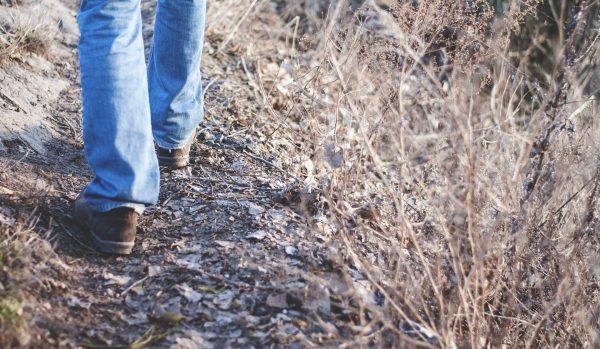6 Reasons hiking could help improve your mental and physical well-being
1. Hiking helps you connect to nature.
The Aboriginal peoples of the Daly River region (Northern Territory, Australia) have a spiritual practice called Dadirri- a inner deep listening that allows you to come to peace with yourself and understand the beauty of the creation. The Japanese may speak of the desire for shinrin-yoku- forest bathing. Some in Germany may say they have a sense of waldeinsamkeit- the feeling of being alone in the woods. A Swede may long for friluftsliv- living the outdoor life. Across the globe and across cultures, there often words and phrases that convey humans’ desire and need to connect with nature.
2. Taking regular hikes is a great way to help improve muscle strength and balance.
You probably know that hiking can really work your legs. Whether you are doing a hike on a smooth level trail or hiking in mountain terrain, your quadriceps, hamstrings, and glutes will be called into action. As you traverse rougher terrain, your core will definitely be recruited to help maintain your balance. Poles will not only help for a more stable experience but also engage the muscles of your arms, shoulders, and upper back. Of course, by adding a pack, you will increase your intensity- be sure not to make it too heavy.
3. Hiking is a great workout- that provides cardiovascular fitness and bone health benefits.
Hiking is going to get your heart going. If you are hiking on varied inclines and declines, it could provide many of the same cardiovascular benefits as running or cycling. Besides being a weight-bearing exercise, it is great for helping keep those bones healthy.
4. Hiking in nature helps improve your focus and attention span
The evidence continues to build, supporting the idea that exposure to nature can help restore your ability to concentrate (aka Attentive Restoration Theory). (3) Choosing that lunchtime hike instead of doing cardio indoors may help you focus better in the afternoon.
5. Hiking is good for your mental health
Studies have shown that spending time in nature (or even urban parks and green spaces) is beneficial and has been shown to decrease stress levels and anxiety. Walkie regularly has even been shown to lower your risk for depression. If you have ever gone for a hike and reached a summit with a beautiful view, you probably don’t need a study to tell you hiking can make you do not care in the world.
6. It gives you a creative boost
A 2008 study (1) from Standford demonstrated that walking “opens up the free flow of ideas.” And during and immediately walking outside, individuals were more creative than sitting outside, walking indoors, or doing other physical activity indoors.
- American Bone Health. (2019, March 22). Walking and Bone Health. Retrieved November 10, 2020, from https://americanbonehealth.org/exercise/bonesense-on-walking-and-bone-health/
- American Bone Health. (2017, January 13). How to: Hiking. Retrieved November 10, 2020, from https://americanbonehealth.org/best-bones-forever/how-to-hiking/
- (2016) Attention Restoration Theory: A systematic review of the attention restoration potential of exposure to natural environments, Journal of Toxicology and Environmental Health, Part B, 19:7, 305-343, DOI: 10.1080/10937404.2016.1196155
- Harvard Health Publishing, .. (2016, September). Take a hike! Retrieved November 10, 2020, from https://www.health.harvard.edu/heart-health/take-a-hike
- Dutcher, D. D., Finley, J. C., Luloff, A. E., & Johnson, J. B. (2007). Connectivity With Nature as a Measure of Environmental Values. Environment and Behavior, 39(4), 474–493. https://doi.org/10.1177/001391650629879
- University, S. (2016, April 09). Stanford researchers find mental health prescription: Nature. Retrieved from https://news.stanford.edu/2015/06/30/hiking-mental-health-063015/
- , , , ,
- Oppezzo, M., & Schwartz, D. L. (2014). Give your ideas some legs: The positive effect of walking on creative thinking. Journal of Experimental Psychology: Learning, Memory, and Cognition, 40(4), 1142–1152. https://doi.org/10.1037/a0036577





About The Author: Conni Briggs
More posts by Conni Briggs